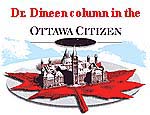


"Who is watching the psychotherapist?"
June 3, 1998
|
The 18th Century jurist, Sir William Blackstone, wrote that "it is better that ten guilty persons escape than one innocent suffer." This principle served for centuries as one of the cornerstones of English Common Law. The rights of an innocent man were held in high regard and society was assured that innocent people need not fear wrongful conviction or imprisonment. The standard was one of "beyond a reasonable doubt." But times have changed. It is now believed that in some cases it is better that many possibly innocent men suffer than one guilty one escape. In these cases, there is no dead body, no smoking gun, no semen or DNA sample. There is only the testimony of an alleged victim, describing a supposedly uncovered memory. Most people today have heard of these recovered memory cases of daughters accusing fathers, students accusing teachers, and parishioners accusing priests. Almost always they involve reports of sexual abuse or assault (although in one notorious, recently overturned conviction, a daughter accused her father of killing her playmate some twenty years earlier.) And almost always these "memories" have been uncovered in psychotherapy. Recently people have become aware of the controversy that surrounds this issue. On one side are the protagonists - psychologists and psychotherapists, most often female, who espouse the theory that most, if not all, psychological problems are the manifestation of earlier trauma and abuse. They argue in unison that memories can be repressed, that these memories are factual, that people would never make up such horendous stories, and that to question their authenticity is to "re-victimize the victims." For a while, Ellen Bass and Laura Davis, coauthors of "The Courage to Heal," and loud voices in this debate, even contended that if a woman thinks she has been abused she probably was - no further questions to be asked. On the other side, the antagonists, including prominent research psychologists such as Elisabeth Loftus, hold that memory involves restructuring the event in the mind and is susceptible to suggestive influences. They raise questions about the truth of recovered memories and focus on the role therapists may be playing in creating them. But what goes virtually unnoticed is the silence of the professional associations and the regulatory boards which oversee these therapists. Where are the voices of the national associations and the licensing boards? It is their role to "protect the public," not just from unprofessional practitioners but also from unprofessional practice, including that which enters courtrooms. Where are they? Take, for example, the American Psychological Association. In 1993, it established a working group to address the issue of memories of childhood abuse. Three years later, a report was submitted which acknowledged a split between the clinicians who believed in recovered memories, and the researchers who studied memory. It conceded that it was "important to acknowledge frankly that we differ markedly on a wide range of issues." So one professional psychology organization, the largest and most influential in the world, could find no agreement and chose to waffle. Canada’s national organization, the Canadian Psychological Association, is no better, referring to its guidelines addressing recovered memories, as "aspirational in intent." And as for the licensing boards, they express no opinion and take no action to curb dubious treatments, qualify questionable claims or warn the consumers and the courts. So where does that leave us? In a bog! A land in which there is much fighting but where there is little accepted science and little agreed fact. The APA Working Group bemoaned the "increasing ‘Balkanization’ of psychology," the existence of many psychologies and little understanding. Given the confusion , why do prosecutors proceed with such cases, and why courts allow recovered memories to be introduced as evidence. The answer to the first question is, I suspect, that prosecutors, who naturally are concerned about their own careers, are reluctant to take a stand or turn down cases at a time when violent crime is on a downturn. As for the courts, they have not been given the full picture of the controversy nor instructed about the lack of a firm foundation for the widely expressed beliefs about repressed memories. There is an established principle in law, the Frye Rule, which holds that scientific evidence, including psychological evidence, is admissible only if it is sufficiently established to have general acceptance in its field. A 1993 U.S. ruling is even stronger, holding that the scientific validity of the principles and methodology is essential before the court can accept them. By either standard, recovered memory theory would not be acceptable. But convictions still happen and people languish yet in Canadian prisons. The professional associations that remain silent should hang their collective heads in shame. And a Justice System that chooses to turn a blind eye leaves Canadian society realistically fearful that innocent people can be wrongfully convicted and imprisoned. Let us hope that Justice Minister Anne McLellan will open her eyes to the illusions of knowledge and expertise within psychology, and her ears to the wise words of Justice Blackstone. |
tanadineen.com
@ Dr.Tana
Dineen
1998-2003
by
Dr. Tana Dineen, special columnist,
The Ottawa Citizen